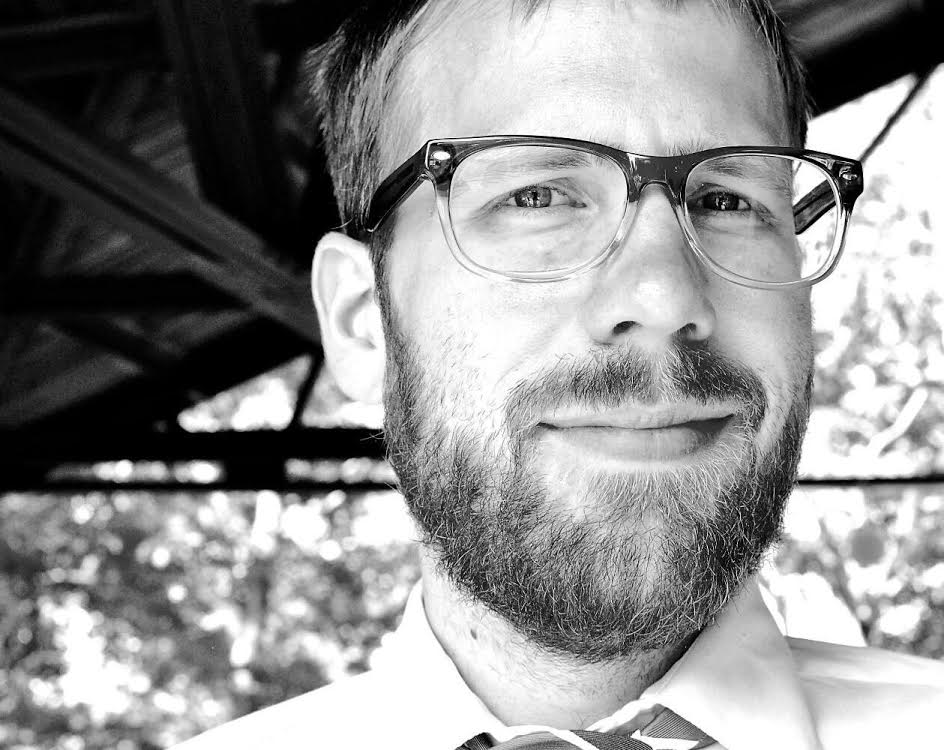Before selling her house and moving into assisted living, my grandmother bequeathed a green and white box of papers to my aunt. My aunt passed it to me. The idea was that, as a writer, I could do something meaningful with it.
I was a senior in college, and I sifted through the box. There were a few poignant letters, written to my grandmother after my grandfather’s suicide, but mostly the box contained a few poems my grandmother had written and obsessively recopied, some John Birch society publications, and a number of pocket-sized copies of the US Constitution.
The box is still in my closet, lugged through several regional and, later, cross-country moves. My parents wouldn’t let me keep it at their house, and my wife often asks about my plans for that box in our closet. I don’t have any.
What do writers do with their past? With their family history? What responsibility is there to tell that story—either faithfully or imaginatively? What urge?
It seems to me there are at least three poetic ‘methods’ we could use to examine this question, and Connie Braun’s book Unspoken could be looked at in each light.
First, one could see it as a kind of “documentary writing.” In the last 5 or so years, the term “documentary poetry” has cropped up in discussions of contemporary poetry (http://coldfrontmag.com/spotlight-mark-nowak/). The discussion around documentary poetics begs the question: what poetry ISN'T to some extent documentary in nature? Even Blake's wildest flights evoke a time and place. Still, I suspect it is the reader’s natural impulse to narrativize the history of a poem’s creation (What history inspired the writer to make this choice?) that makes everything “documentary.”
Perhaps a useful contrast is the second possible way of seeing this text: as Confessional poetry, which, historically speaking, was a reaction against modernist poetics, exemplified by T.S. Eliot’s ‘escape’ from personality through fetishizing technique (Hirsch). Instead, "Why not say what happened?" as Lowell put it. Confessional poetry, though, is more explicitly about an "I," and documentary poetics doesn't always use the I's perspective to “say what happened.” Instead, it might incorporate well-rehearsed memories, newspaper clippings, even family photographs into the fabric of its craft, merging communal voices and personal, as Braun does in her book.
A third way to understand this book is as an ekphrastic exploration of family history—and to me this seems to be the most fitting one. Ekphrasis, based on a Greek concept, is defined by Marjorie Munsterberg as a literary form that describes something so well that it makes the reader feel its presence. Furthermore, an ekphrastic work is explicity concerned with the process of is own making. As such, the text centers around the act of retellings of Braun’s Mennonite family’s history. It is particularly concerned with family figures--presenced in the writer’s memory--but also with absent figures. Moreover, the poems are directly concerned with how a poet relates to the past, with what is imagined or omitted or translated—in this case, not just a personal past, but the past of a people living out a faith story, sometimes under great duress. Poems in the book that deal with this theme explicitly strike me most powerfully.
In “A Talk with my Son about God,” Braun struggles with the things she is passing on to her own child: he says “we think the way we do because we’re born into it” and she reminds him of the struggle of his own family to preserve belief:
...I remind you, as your grandfather remembers, that when he was young
his father held meetings secretly in birch forests where conversations
like the ones we are having meant arrest and exile to the Gulag.
Even so, my grandparents passed along stories about God to my parents.
Later she admits “Yes, you were born into this heritage.” But at these moments, the birthright of belief is, she says, something to be “unpacked.” The subtitle of the book is “an inheritance of words,” indicating Braun’s interested in unpacking this inheritance, but the words are hers.
An inheritance is impossibly complex, and Braun gestures toward the impossibility/endlessness of this unpacking several times, particularly in the Ricoeur quote scattered through the book at several points: “My life cannot be grasped as a singular totality.” Braun’s approach to poetic form also gestures toward this. Many of the poems are structured as extended series. Such sectional poems allow for a more fragmentary approach, and--speaking as a writer--these fragmentary approaches feel especially true to the writing process.
Braun’s lines are often long, sometimes extending beyond the edge of the page. This is not characteristic of all the poems, but when it is, it conveys the sense of attempting to hold, to even ‘rein in,’ what is otherwise impossible to hold:
I tucked
my head into the living room, curious as to why she was lying
on the couch in the middle of the day—
she was usually in the kitchen kneading dough, or hoeing
in the garden and I knew something was wrong. I was too young
to know the word cancer, my mother and aunt whispering it.
That must have been when I first learned to tuck away pain....
Braun’s arc of writing suggests she senses an urge as well as an obligation to tell her family’s stories. Certainly there is something remarkable in her particular family’s history, and perhaps that’s the key difference between what got her to write and what has thus far kept me from writing from my own grandmother’s box. I expect, though, that a good bit has to do with Braun’s dedication to reflecting on the process of continually unpacking that heritage.
